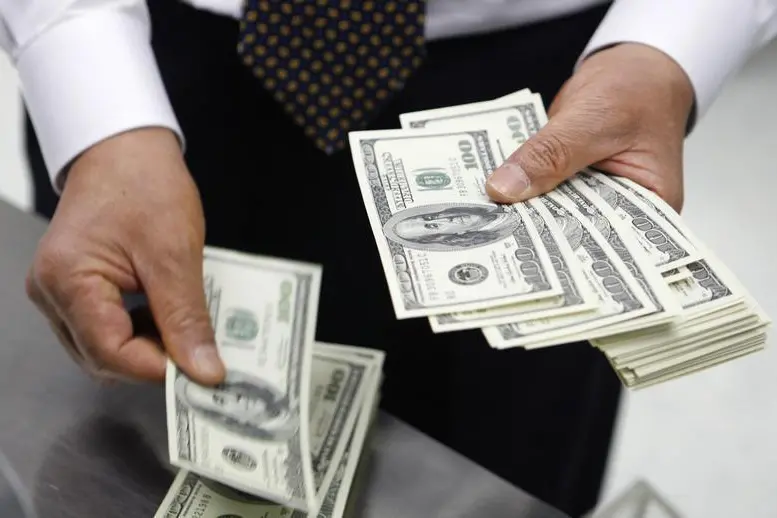PHOTO
SINGAPORE - The dollar retreated on Friday, dragged by lower U.S. Treasury yields after a spike in weekly jobless claims raised traders' hopes that a peak in U.S. interest rates was near, as focus turned to the upcoming week packed with central bank meetings.
The number of Americans filing new claims for unemployment benefits surged to the highest in more than 1-1/2 years last week, data on Thursday showed, though layoffs are probably not accelerating as the data covered the Memorial Day holiday, which could have injected some volatility.
Nonetheless, that was enough to knock the U.S. dollar to a more than two-week low against a basket of currencies in the previous session, as investors took the data as a sign that the U.S. labour market was slowing.
The dollar index last stood at 103.35 in early Asia trade on Friday, having lost more than 0.7% in the previous session, its largest daily decline in weeks.
Against the Japanese yen, the greenback dipped to a one-week low of 138.765, tracking a slide in U.S. Treasury yields.
The benchmark 10-year Treasury yield last stood at 3.7295%, after falling 7 basis points on Thursday. The two-year yield, which typically moves in step with interest rate expectations, steadied at 4.5210%.
"We do think that the U.S., like many economies, will go through a shallow recession this year. So that'll show up in payrolls numbers and jobless claims and these sorts of numbers," said Jarrod Kerr, chief economist at Kiwibank.
Elsewhere, sterling touched a near one-month high of $1.2564, while the kiwi last bought $0.6095.
The Turkish lira tumbled more than 1% against the dollar to a record low of 23.54.
ACTION-PACKED C.BANK WEEK
Markets now turn their attention to the upcoming week which will see the Federal Reserve, the European Central Bank (ECB) and the Bank of Japan (BOJ) announce their interest rate decisions following their respective policy meetings.
The Fed takes centre stage, with money markets leaning toward a pause, though have priced in a 25% chance that the U.S. central bank delivers a 25bp rate hike.
"A slowing U.S. economy gives the Fed room to pause after 500bp of consecutive interest rate rises," said Guillermo Felices, global investment strategist at PGIM Fixed Income.
"The key question for markets is whether the Fed will just skip a hike in June and resume their tightening campaign in July."
Meanwhile, a clear majority of economists polled by Reuters expect the ECB to hike its key interest rates by 25 bps on June 15 and again in July before pausing for the rest of the year as inflation remains sticky.
The euro was last steady at $1.0782, flirting with Thursday's over two-week high of $1.0787.
The Canadian dollar last bought C$1.3365, not far from its one-month high of C$1.3321 hit on Wednesday, while the Aussie similarly stood near a roughly one-month peak at $0.6711.
Both currencies have drawn support from surprise rate increases by their respective central banks this week, which caused markets to revise their expectations for a peak in global interest rates.
(Reporting by Rae Wee; Editing by Sam Holmes)





















